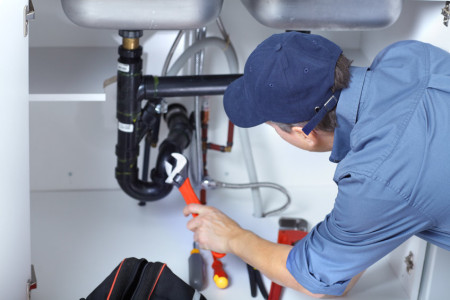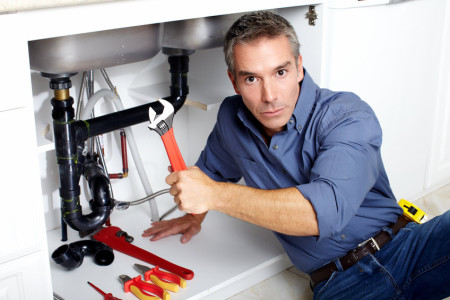Emergency Plumbing Tips: How to Manage Issues Until Assistance Arrives
Emergency Plumbing Tips: How to Manage Issues Until Assistance Arrives
Blog Article
What are your opinions about What to Do While Waiting for an Emergency Plumber?

Plumbing emergencies can strike at any moment, triggering anxiety and possible damages to your home. Whether it's a ruptured pipe, a stopped up drain, or a leaky faucet, recognizing just how to manage the situation up until an expert plumbing technician shows up can conserve you from more difficulties. This write-up provides important emergency plumbing suggestions to assist you alleviate damages and reclaim control throughout a pipes crisis.
Shut off the Water System
The primary step in any kind of pipes emergency situation is to shut down the water. For local problems, such as a dripping faucet or toilet, turn off the valve near the fixture. When it comes to a significant leakage or burst pipe, locate your home's primary water shut-off valve and transform it off quickly. Recognizing the location of these valves in advance can save useful time during an emergency.
Address Little Leakages with Momentary Repairs
Little leakages can swiftly come to be substantial troubles if left uncontrolled. Make use of these short-lived repairs up until specialist help shows up:
While these repairs aren't long-term, they can assist lessen water loss and damages.
Unclog Drains Pipes Securely
A stopped up drainpipe can be an irritating and unpleasant concern. Below's just how to tackle it:
If these methods don't work, avoid using excessive force, as it may intensify the blockage.
Handle Overflowing Toilets
An overruning bathroom can trigger instant turmoil. Right here's what you must do:
Turn off Your Water Heater
In certain emergencies, such as a ruptured pipeline, it's a good idea to shut off your hot water heater. This protects against getting too hot or damage to the unit when water quits streaming. Switch off the power supply to the hot water heater (electric or gas) and let it cool to prevent potential threats.
Momentarily Stop a Burst Pipeline
A burst pipe can bring about considerable water damage in mins. To reduce the issue:
Call a professional plumber immediately to resolve the issue permanently.
Handle Frozen Piping Very Carefully
In colder environments, icy pipes are an usual emergency situation. If you think an icy pipe:
Prevent More Damage
Taking quick activity to minimize damages can save you money and time in the long run. Right here's how:
. Have an Emergency Pipes Kit
Prepare a fundamental pipes emergency set to take care of minor problems effectively. Your set needs to include:
Having these tools handy can make a substantial difference in your capability to take care of emergency situations.
Know When to Call a Professional.
While quick fixes can assist momentarily, certain plumbing problems call for immediate expert interest. Call a plumbing professional if:.
Quickly getting in touch with an expert makes certain the concern is solved appropriately and protects against further complications.
Conclusion.
Plumbing emergencies can be overwhelming, however with the ideal understanding and devices, you can manage the situation efficiently up until assistance shows up. By shutting off the supply of water, dealing with little leaks, and utilizing short-term repairs, you can reduce damage and keep your home safe. Remember, these tips are temporary solutions; always consult a qualified plumbing professional to take care of the origin of the issue. Prep work and fast reasoning are your finest allies in any type of plumbing emergency.
8 Helpful Tips for Managing Plumbing Emergencies at Home
If your plumbing system hasn’t failed once, wait for it because almost everyone has a story to tell. Sometimes, it could be simple emergencies such as a leaking pipe, a blocked cistern, or even a big burst pipe. In situations like this, you need to have some handy tips to save you some money and from possible damages.
Take care of minor issues early.
Sometimes, you could have avoided an emergency by taking proactive measures while it was still early. Some major plumbing emergencies can be a result of an ignored minor issue. We recommend that you have items like plumbing tapes and other related items. A plumbing tape can allow you to manage minor leaks before the plumber arrives.
Cut off the water supply.
This tip is essential in almost any type of leakage problem. For problems like minor leakages in the toilet or kitchen, turn off the supply that takes water to the affected pipes. If the leakage is a major pipe, you must shut off the supply valve to the entire building. This will help you avoid flooding your home and neighbors if you share a flat.
Know your plumbing system
Folks typically move into a new apartment without understanding the water supply around the building. This can prove disastrous if a water emergency arises and the plumber is far away. The previous tip will prove useless if you don’t practice this one. More importantly, know where your water shut-off valve is located – you’ll need that knowledge to prevent potential home floods.
Have some common handy tools
There are lots of plumbing emergencies that you can handle without hiring a plumber. That’s why you must keep some tools available always. Some tools that you can use to fix simple plumbing emergencies easily include plumbing tapes, screwdrivers, thread seal tapes, plungers, pliers, tape measures, and rubber gloves.
Insulate your pipes from cold
You’ll save yourself from many plumbing expenses if you protect your water pipes from the cold. This is because of the harmful effects that cold weather can have on your pipes. During winter, your pipes can burst from being overly expected to freezing temperatures. So, make sure insulators are there to keep the pipes working correctly.
Avoid practices that will clog your toilet.
Many people indulge in practices that can damage the plumbing system of the entire building. One of these is when they use their toilet to dispose-off garbage. They flush all kinds of things, such as paper towels, bandages, hairs, female sanitary products, etc., down the toilet. This will block your toilet in the long run, incurring unnecessary expenditures. Dump such waste in the trash instead.
Check your dials regularly.
Sometimes, there could be leakages in your home without noticing them in time. So, constantly monitor your water meter dial. If the dial is reading when there is nobody using water, this is an indicator that there is leaking. Check for leaks immediately. Call a plumber as soon as possible if you can’t find any.
https://www.constructionplacements.com/8-helpful-tips-for-managing-plumbing-emergencies-at-home/

Do you really like reading about ? Place feedback directly below. We'd be pleased to see your responses about this post. We hope that you visit us again before long. Appreciated our review? Please share it. Help other people locate it. Thanks a bunch for being here. Revisit us soon.
Book An Estimate Now Report this page